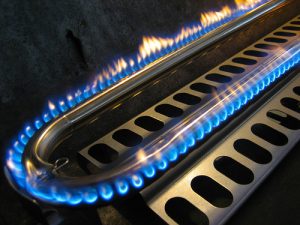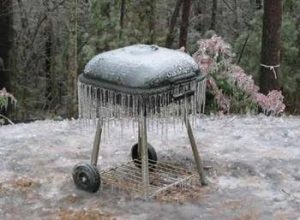 It’s happened to a lot of cookers… GAS issues! Not what you may be thinking but it could also happen to you! You’re in the homestretch of a day of prepping for the cookout. Chicken’s on… and the gas on the… grill is… slowly… dying.
It’s happened to a lot of cookers… GAS issues! Not what you may be thinking but it could also happen to you! You’re in the homestretch of a day of prepping for the cookout. Chicken’s on… and the gas on the… grill is… slowly… dying.
BBQ Tips and Tricks
 It’s happened to a lot of cookers… GAS issues! Not what you may be thinking but it could also happen to you! You’re in the homestretch of a day of prepping for the cookout. Chicken’s on… and the gas on the… grill is… slowly… dying.
It’s happened to a lot of cookers… GAS issues! Not what you may be thinking but it could also happen to you! You’re in the homestretch of a day of prepping for the cookout. Chicken’s on… and the gas on the… grill is… slowly… dying.
Warmer weather is finally here, and that means it is officially grilling season!
There are few things that feel more like summer than standing around a grill with friends on a warm evening. While some people fire up their grill without putting any thought into how they will be cooking their meal, others are dedicated to certain methods and techniques.
Some people prefer the convenience of using a gas grill, while others are fiercely loyal to charcoal. Traditionally, grills are designed to cook with either gas or charcoal. If you like to use both fuel sources, hybrid grills are a great solution.
There will always be a debate about which fuel source is best when it comes to grilling. Here is a quick guide to help you determine which fuel source is best for the cooking at hand:
 Gas
Gas
There is one advantage that gas grilling has above all other fuel sources: convenience. To start a gas grill, you simply have to turn a knob and press a button. Once lit, you have an easily controllable heat source to cook your food. Gas grills are also relatively easy to clean because there are no leftover ashes.
While gas grills are probably the easiest to use, grilling enthusiasts often have one major complaint: a lack of flavor.
Lump Charcoal
When you burn wood in the absence of oxygen, the remains of this natural process is lump charcoal.
One of the great aspects of lump charcoal is how quickly it gets extremely hot. This typically takes only 10 to 15 minutes. Because lump charcoal gets so hot, it can sear foods rapidly. It also produces a very dry heat, which creates that delicious, caramelized crust on the outside of your food.
This quick heating process makes lump charcoal great for grilling foods that cook quickly.
Once lump charcoal reaches maximum temperature, it loses heat quickly, which can be disadvantage. If you want to use lump charcoal and sustain a high temperature, you will need to replenish the charcoal periodically. Because you are using charcoal, there will be ash cleanup involved.
Briquettes
Briquettes are similar to lump charcoal in how intensely they burn, but the similarities end there. One of the easiest ways to discern them is to look at their shape. While lump charcoal is inconsistently shaped, making it difficult to stack, briquettes usually have a uniform shape.
An advantage briquettes have over lump charcoal is that they burn for long periods of time, which makes it easier to cook at a more consistent temperature than lump charcoal.
While lump charcoal is created through an all-natural process, briquettes are not. Briquettes typically contain additives that help them light, burn and keep their shape. These chemical additives will give off a distinct smell when they are lit, but if you wait to start cooking until all the briquettes are covered in white ash, that smell shouldn’t transfer to your food.
Author Bio:
This is a guest post by Arianna on behalf of Kalamazoo Outdoor Gourmet. Visit kalamazoogourmet.com to find out more about our hybrid grills.
Winterizing Your Grill
 By David Felt
By David Felt
So you’ve got your heater on and your windows draft proofed. But there may be something you’re forgetting that also needs special preparation in the winter time. Your grill will last much longer if you take these steps in winterizing your grill.
Start by thoroughly cleaning your grill. It’s a dirty job but getting all of that that grease and grime off now will be easier than cleaning it off when you go to use in the summer. Start up your grill and let it run on high for about 15-20 minutes, this will burn off any food that may have accumulated. Turn it off and let it cool, then use a good degreaser and really scrub it.
Taking these steps to winterize your grill will ensure that come summertime your grill is in condition to fire up and start grilling.
David Felt is an account manager at Modern Propane and a grill master. He understands that the quality of food coming off a grill greatly depends on the grill itself. You can find out more about Modern Propane at http://www.modernpropane.com
Article Source: http://EzineArticles.com/?expert=David_Felt
http://EzineArticles.com/?Winterizing-Your-Grill&id=8219117
What’s the best BBQ fuel source? Purists say charcoal. Hardwood lump. Hardwood. But the crew at our weekly BBQ and Grill show – GrateTV – think you can still get a great tasting product with propane gas. your life may be a little easier in the process. Charcoal snoots beware – you may not want to hear this.
Also remember to subscribe to our YouTube Channel (or comment on a vid if you already subscribed) to win our Island Grillstone to be given away 7/1/13. More Here
GrateTV: New Episodes Every Thursday!
– – – – – – – – – – –
Subscribe on YouTube (never miss a video!) http://www.youtube.com/subscription_center?add_user=BarbecueTricks&feature=creators_cornier-
Facebook: http://facebook.com/gratetv
Twitter: http://twitter.com/barbecuetricks
Check out over 200 videos and recipes at http://GrateTV.com
– – – – – – – – – – –
GrateTV is a short-form, educational web series focused on making barbecue fun! We release a new episodes every week typically originating from the LowCountry of South Carolina “the Birthplace of American BBQ.” Each episode is brief – about a beer in length. Our focus is on fun but easy barbecue tips and tricks plus entertaining information.
Posts on this site may contain affiliate links. If you purchase something via one of these links you won’t pay more but the site operator gets a small commission. Or as I like to call it: “beer money.”